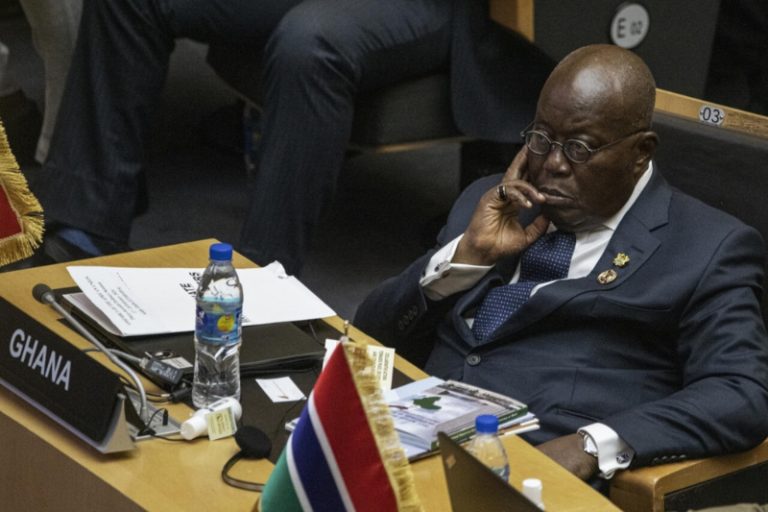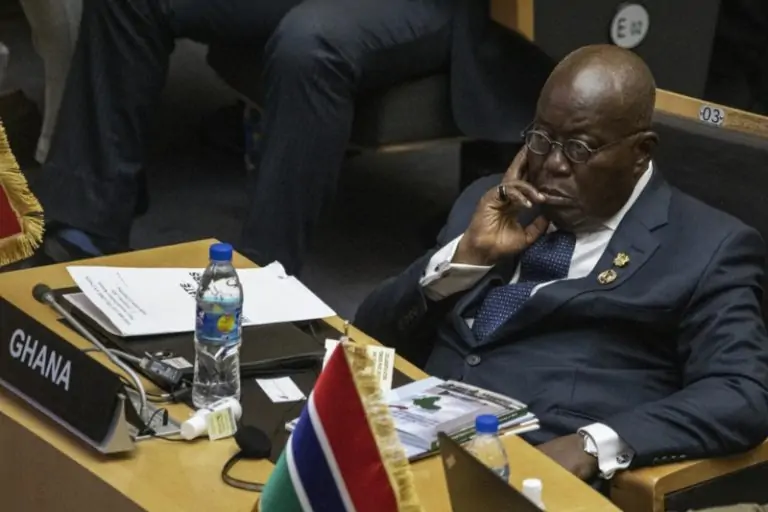

ghanas finance ministry urges president to reconsider controversial anti lgbtq bill
Ghana is currently experiencing a severe economic crisis and relies heavily on international financial assistance. The finance ministry has estimated that the country could lose a total of $3.8 billion in World Bank funding if the president signs the anti-LGBTQ+ bill. This funding loss would have a significant impact on Ghana’s economic recovery, potentially derailing efforts to stabilize the exchange rate, reduce inflation, and boost growth.
The United States, United Kingdom, and numerous human rights organizations have condemned the anti-LGBTQ+ bill. The US, which is a major donor to Ghana, has expressed concerns that the bill violates fundamental human rights and could undermine bilateral relations. Additionally, the World Bank has indicated that it may reconsider its support for Ghana if the bill becomes law. Facing international pressure, President Nana Akufo-Addo is facing a difficult decision that could strain diplomatic ties and jeopardize vital financial assistance.
Even before the bill was passed by parliament, human rights groups initiated legal proceedings to challenge its constitutionality. The Supreme Court is expected to hear the case, though the timing is uncertain. President Akufo-Addo has seven days to sign the bill into law, after which he has 14 days to provide reasons if he chooses not to do so. By recommending that he wait for the Supreme Court’s ruling, the finance ministry is urging the president to prioritize legal considerations and avoid further political and economic controversy.
The anti-LGBTQ+ bill has been met with widespread criticism from rights groups and activists who view it as a severe violation of fundamental freedoms. The bill criminalizes individuals for their sexual orientation and gender identity, and its broad definition of “LGBTQ+ activities” could be used to target anyone who expresses support for or engages with LGBTQ+ individuals or organizations. Human rights defenders argue that the bill sends a harmful message of discrimination and intolerance.
Ghana’s decision on the anti-LGBTQ+ bill could have implications for other countries in the region and beyond. Several African nations have passed or are considering similar laws, and Ghana’s actions could set a precedent. By rejecting the bill or allowing it to be struck down by the Supreme Court, Ghana could send a positive signal to other countries that human rights and inclusion should be upheld.
Ghana’s finance ministry’s warning to President Akufo-Addo is a clear indication of the potential consequences of signing the anti-LGBTQ+ bill. The significant economic implications, political pressure, and human rights concerns should be carefully considered. As the president deliberates on his next steps, the international community awaits his decision with a keen interest in Ghana’s future trajectory on issues of equality and social progress.
The South African Social Security Agency (SASSA) informs its beneficiaries that Workers' Day on May 1st will push the May…
A team from the West African group ECOWAS (Economic Community of West African States) has left Guinea-Bissau after the country’s…
MultiChoice and NBCUniversal have given $145 million to support Showmax Africa. This money will help with running the business and…
The ongoing search for Free State police officers in Centurion resulted in the discovery of five dead bodies found in…
The Sistine Chapel will welcome Cardinal members in the forthcoming week to start electing succession candidates on May 7 for…
Namibia’s President, Netumbo Nandi-Ndaitwah, has removed Agriculture Minister Mac-Albert Hengari from his position. The decision came after serious allegations of…
This website uses cookies.